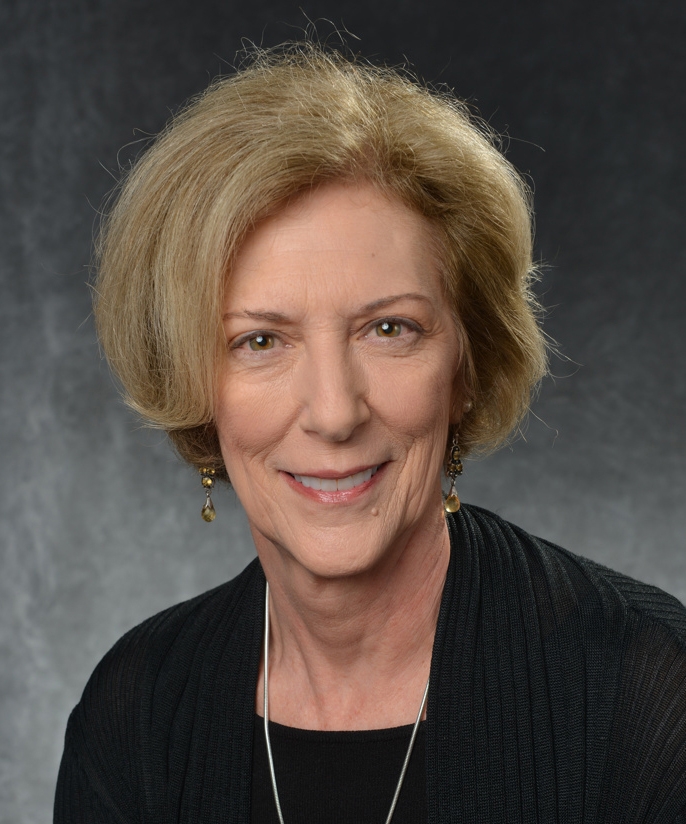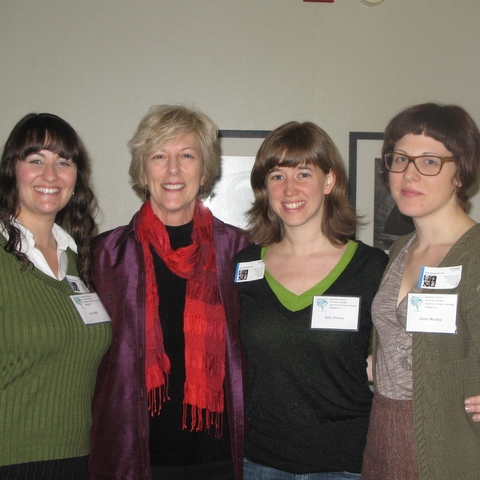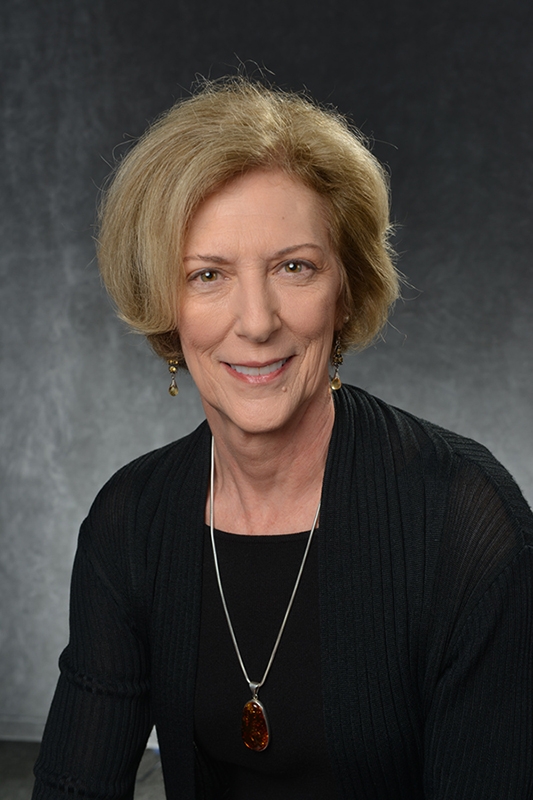Profile

Stephanie Shields
Birth:
1949
Training Location(s):
PhD, Pennsylvania State University (1976)
MS, Pennsylvania State University (1973)
BS, Santa Clara University (1971)
Primary Affiliation(s):
Pennsylvania State University (1996-Present)
University of California Davis (1977-1996)
Pennsylvania State University (1975-1977)
Psychology’s Feminist Voices Oral History Interview:
Career Focus:
Gender and emotion; social psychology of gender; history of women and gender; intersectionality.
Biography
Stephanie A. Shields was born on February 9, 1949 in Omaha, Nebraska. She was raised in a home environment that fostered the importance of college education and independence. She received a California State Scholarship which provided funding for four years of Bachelor of Science education at Santa Clara University - including a year abroad in Rome. She developed a feminist consciousness in her senior year when she read a book by Judith Bardwick on the psychology of women.
On her return from Rome, Shields was hired as an undergraduate teaching assistant for developmental psychologist, Eleanor Williamson, and did an internship at the Head Start Center. She became interested in "how kids learn to map internal states so that they can tell the difference between emotion and not emotion, this emotion or another emotion" as well as "how they learn to map their feeling states onto the language and appearance that other people use."
After receiving her B.S. degree, Shields went to graduate school to study emotion at Pennsylvania State University. When she was in graduate school, she described herself as "a newly hatched, newly turned on, and a little pissed-off baby feminist." She remembers vividly the gender disparities in the Department of Psychology in her first year. She recalls that only two of the 30 tenure-line faculty at the time were women. As well, when six new faculty openings came up, they were all filled by white men. The following year, she initiated a collective meeting with the women in the Department of Psychology which eventually led to a seminar on the psychology of women.
Shields' interest in the history of women in psychology goes back to when she took a course in the history of psychology on the recommendation of her college roommate. Although not explicitly supported by the course director, she followed her own interests and wrote an extensive, well-researched, 70-page paper on the history of women in psychology that started at the time of Aristotle, through Christine de Pizan, to American functionalism. Through this research she encountered the work of psychologist Leta Hollingworth. In her third year of graduate school, when she was free from teaching, she devoted all of her time to research on the history of women psychologists. She revised her 70-page paper and wrote another paper about the lost work of Leta Hollingworth. Although Shields was not a member of the American Psychological Association (APA) at the time, she nonetheless submitted her Hollingworth paper to APA's Division of the Psychology of Women, Division 35, to present at the New Orleans conference in 1974. Her paper was accepted and she presented it "in a room just chock full of people and with people standing." It came as a surprise to her when both of her history papers were published by the American Psychologist in 1975.
Although Shields was in the developmental psychology stream in graduate school, she wrote her master's thesis on postpartum depression because of her keen interest in emotion. During her doctorate she became interested in psychophysiological measurement and moved on to studying the psychophysiology of emotion. Her dissertation was titled Children's Reported and Actual Responses to a Stressful Situation. In 1975, when she was still ABD, she was offered a position as a lecturer at the Altoona campus at Pennsylvania State University. Although she enjoyed teaching there, she eventually wanted to move to a research university. In 1977, she received an offer of an Assistant Professor position at the University of California, Davis. She accepted the position and moved back to California where her family was living.
Shields continued to do research on the psychophysiology of emotion at the University of California Davis. As she notes of this time: "I had been told very clearly that I was not going to get tenured if I did work about the history of gender...It was not real research."
Shields was constantly looking for ways to connect her interest in the psychology of gender with her research in emotion. She eventually got an opportunity to teach both Psychology of Women and Psychology of Emotion courses alongside each other. Teaching both courses, she realized that gender and emotion are very much related, and combining gender and emotion in her research was possible.
Her contributions to the theory and practice of psychology are reflected in the 85+ articles and book chapters she has published, in areas ranging from emotion and gender to feminist theory and the history of psychology. She published Speaking from the Heart: Gender and the Social Meaning of Emotion in 2002. In the book, Shields argues for moving beyond a "gender differences slash similarities type model," noting that this approach stays at the level of comparing genders as opposed to problematizing gender.
Shields has been very active as the founding editor of the newsletter for the Emotion Society. In 1996, she had an opportunity to meet with prominent emotion researcher Magda Arnold in Tulsa. Arnold was 93 years old at the time. Although Arnold's work had not been particularly influential in Shields' own research, she was impressed by the fact that Arnold's scientific work on emotion in the 1960s was truly groundbreaking; no one else was studying emotion in that way at that time. She thus organized a special issue of the journal Cognition and Emotion on Arnold's contributions to emotion research.
Shields left the University of California, Davis and since 1996 has been a Professor of Psychology and Women's Studies at Pennsylvania State University. Her advice to feminists who are pursuing psychology? Shields notes the importance of making bridges among various intellectual and subdisciplinary communities, and taking a long view on efforts to change psychology. Getting psychology to change, she notes, is like getting an oil tanker to take a turn: "You have to start 40 miles ahead to get a little bit of a turn and so you know you have to choose where you are going to have your impact."
by Pelin Gul (2011)
To cite this article, see Credits
Selected Works
Shields, S. A. (1975). Functionalism, Darwinism, and the psychology of women: A study in social myth. American Psychologist, 30, 739-754.
Shields, S. A. (1975). Ms. Pilgrim's progress: The contributions of Leta Stetter Hollingworth to the psychology of women. American Psychologist, 30, 852-857.
Shields, S. A. (1982). The variability hypothesis: History of a biological model of sex differences in intelligence. Signs: Journal of Women in Culture and Society, 7, 769-797.
Shields S. A. (1991) Gender in the psychology of emotion. In K. T. Strongman (Ed.), International Review of Studies on Emotion. Volume1 (pp. 227-245). New York: John Wiley.
Shields S. A. (1998). Illusions of progress and "insurgent science." Feminism & Psychology, 8, 99-104.
Shields, S. A. (2002). Speaking from the heart: Gender and the social meaning of emotion. Cambridge, UK: Cambridge University Press. (Recipient of 2003 Association for Women in Psychology's Distinguished Publication Award)
Shields, S. A. (2005). The politics of emotion in everyday life: "Appropriate" emotion and claims on identity. Review of General Psychology, 9, 3-15.
Shields, S. A. (2007). Passionate men, emotional women: Psychology constructs gender difference in the late 19th century. History of Psychology, 10, 92-110.
Shields, S. A. (2008). Intersectionality of social identities: A gender perspective. Special issue of Sex Roles, 59, 301-311.
Shields, S. A. (2013). Gender and emotion: What we think we know, what we need to know, and why it matters. Psychology of Women Quarterly, 37, 423-435.
Shields, S. A. & Bhatia, S. (2009). Darwin and race, gender, and culture. American Psychologist, 64, 111-119.
Shields, S. A. & Dicicco, E. C. (2011). The social psychology of sex and gender: From gender differences to doing gender. Psychology of Women Quarterly, 35, 491-499.
Shields, S. A., Garner, D. N., Di Leone, B., & Hadley, A. M. (2006). Gender and emotion. In J. E. Stets & J. H. Turner (Eds.), Handbook of the sociology of emotion. New York: Kluwer
Shields, S. A. & Kappas, A. (2006) Magda Arnold's contributions to emotion research. Cognition & Emotion, 20, 898-901.
Shields, S. A. & Zawadzki, M. J. (2010). History of emotion theory. In R. W. Rieber (Ed.), Encyclopedia of the History of Psychological Theories, Part 19 (pp. 1088-1105). New York: Springer.
Warner, L. R. & Shields, S. A. (2010). Gender, status, and the politics of emotional authenticity. In M. Salmela & V. Mayer (Eds.) Emotions, ethics, and authenticity (pp. 91-112). New York: John Benjamin.
Photo Gallery



Stephanie Shields
Birth:
1949
Training Location(s):
PhD, Pennsylvania State University (1976)
MS, Pennsylvania State University (1973)
BS, Santa Clara University (1971)
Primary Affiliation(s):
Pennsylvania State University (1996-Present)
University of California Davis (1977-1996)
Pennsylvania State University (1975-1977)
Psychology’s Feminist Voices Oral History Interview:
Career Focus:
Gender and emotion; social psychology of gender; history of women and gender; intersectionality.
Biography
Stephanie A. Shields was born on February 9, 1949 in Omaha, Nebraska. She was raised in a home environment that fostered the importance of college education and independence. She received a California State Scholarship which provided funding for four years of Bachelor of Science education at Santa Clara University - including a year abroad in Rome. She developed a feminist consciousness in her senior year when she read a book by Judith Bardwick on the psychology of women.
On her return from Rome, Shields was hired as an undergraduate teaching assistant for developmental psychologist, Eleanor Williamson, and did an internship at the Head Start Center. She became interested in "how kids learn to map internal states so that they can tell the difference between emotion and not emotion, this emotion or another emotion" as well as "how they learn to map their feeling states onto the language and appearance that other people use."
After receiving her B.S. degree, Shields went to graduate school to study emotion at Pennsylvania State University. When she was in graduate school, she described herself as "a newly hatched, newly turned on, and a little pissed-off baby feminist." She remembers vividly the gender disparities in the Department of Psychology in her first year. She recalls that only two of the 30 tenure-line faculty at the time were women. As well, when six new faculty openings came up, they were all filled by white men. The following year, she initiated a collective meeting with the women in the Department of Psychology which eventually led to a seminar on the psychology of women.
Shields' interest in the history of women in psychology goes back to when she took a course in the history of psychology on the recommendation of her college roommate. Although not explicitly supported by the course director, she followed her own interests and wrote an extensive, well-researched, 70-page paper on the history of women in psychology that started at the time of Aristotle, through Christine de Pizan, to American functionalism. Through this research she encountered the work of psychologist Leta Hollingworth. In her third year of graduate school, when she was free from teaching, she devoted all of her time to research on the history of women psychologists. She revised her 70-page paper and wrote another paper about the lost work of Leta Hollingworth. Although Shields was not a member of the American Psychological Association (APA) at the time, she nonetheless submitted her Hollingworth paper to APA's Division of the Psychology of Women, Division 35, to present at the New Orleans conference in 1974. Her paper was accepted and she presented it "in a room just chock full of people and with people standing." It came as a surprise to her when both of her history papers were published by the American Psychologist in 1975.
Although Shields was in the developmental psychology stream in graduate school, she wrote her master's thesis on postpartum depression because of her keen interest in emotion. During her doctorate she became interested in psychophysiological measurement and moved on to studying the psychophysiology of emotion. Her dissertation was titled Children's Reported and Actual Responses to a Stressful Situation. In 1975, when she was still ABD, she was offered a position as a lecturer at the Altoona campus at Pennsylvania State University. Although she enjoyed teaching there, she eventually wanted to move to a research university. In 1977, she received an offer of an Assistant Professor position at the University of California, Davis. She accepted the position and moved back to California where her family was living.
Shields continued to do research on the psychophysiology of emotion at the University of California Davis. As she notes of this time: "I had been told very clearly that I was not going to get tenured if I did work about the history of gender...It was not real research."
Shields was constantly looking for ways to connect her interest in the psychology of gender with her research in emotion. She eventually got an opportunity to teach both Psychology of Women and Psychology of Emotion courses alongside each other. Teaching both courses, she realized that gender and emotion are very much related, and combining gender and emotion in her research was possible.
Her contributions to the theory and practice of psychology are reflected in the 85+ articles and book chapters she has published, in areas ranging from emotion and gender to feminist theory and the history of psychology. She published Speaking from the Heart: Gender and the Social Meaning of Emotion in 2002. In the book, Shields argues for moving beyond a "gender differences slash similarities type model," noting that this approach stays at the level of comparing genders as opposed to problematizing gender.
Shields has been very active as the founding editor of the newsletter for the Emotion Society. In 1996, she had an opportunity to meet with prominent emotion researcher Magda Arnold in Tulsa. Arnold was 93 years old at the time. Although Arnold's work had not been particularly influential in Shields' own research, she was impressed by the fact that Arnold's scientific work on emotion in the 1960s was truly groundbreaking; no one else was studying emotion in that way at that time. She thus organized a special issue of the journal Cognition and Emotion on Arnold's contributions to emotion research.
Shields left the University of California, Davis and since 1996 has been a Professor of Psychology and Women's Studies at Pennsylvania State University. Her advice to feminists who are pursuing psychology? Shields notes the importance of making bridges among various intellectual and subdisciplinary communities, and taking a long view on efforts to change psychology. Getting psychology to change, she notes, is like getting an oil tanker to take a turn: "You have to start 40 miles ahead to get a little bit of a turn and so you know you have to choose where you are going to have your impact."
by Pelin Gul (2011)
To cite this article, see Credits
Selected Works
Shields, S. A. (1975). Functionalism, Darwinism, and the psychology of women: A study in social myth. American Psychologist, 30, 739-754.
Shields, S. A. (1975). Ms. Pilgrim's progress: The contributions of Leta Stetter Hollingworth to the psychology of women. American Psychologist, 30, 852-857.
Shields, S. A. (1982). The variability hypothesis: History of a biological model of sex differences in intelligence. Signs: Journal of Women in Culture and Society, 7, 769-797.
Shields S. A. (1991) Gender in the psychology of emotion. In K. T. Strongman (Ed.), International Review of Studies on Emotion. Volume1 (pp. 227-245). New York: John Wiley.
Shields S. A. (1998). Illusions of progress and "insurgent science." Feminism & Psychology, 8, 99-104.
Shields, S. A. (2002). Speaking from the heart: Gender and the social meaning of emotion. Cambridge, UK: Cambridge University Press. (Recipient of 2003 Association for Women in Psychology's Distinguished Publication Award)
Shields, S. A. (2005). The politics of emotion in everyday life: "Appropriate" emotion and claims on identity. Review of General Psychology, 9, 3-15.
Shields, S. A. (2007). Passionate men, emotional women: Psychology constructs gender difference in the late 19th century. History of Psychology, 10, 92-110.
Shields, S. A. (2008). Intersectionality of social identities: A gender perspective. Special issue of Sex Roles, 59, 301-311.
Shields, S. A. (2013). Gender and emotion: What we think we know, what we need to know, and why it matters. Psychology of Women Quarterly, 37, 423-435.
Shields, S. A. & Bhatia, S. (2009). Darwin and race, gender, and culture. American Psychologist, 64, 111-119.
Shields, S. A. & Dicicco, E. C. (2011). The social psychology of sex and gender: From gender differences to doing gender. Psychology of Women Quarterly, 35, 491-499.
Shields, S. A., Garner, D. N., Di Leone, B., & Hadley, A. M. (2006). Gender and emotion. In J. E. Stets & J. H. Turner (Eds.), Handbook of the sociology of emotion. New York: Kluwer
Shields, S. A. & Kappas, A. (2006) Magda Arnold's contributions to emotion research. Cognition & Emotion, 20, 898-901.
Shields, S. A. & Zawadzki, M. J. (2010). History of emotion theory. In R. W. Rieber (Ed.), Encyclopedia of the History of Psychological Theories, Part 19 (pp. 1088-1105). New York: Springer.
Warner, L. R. & Shields, S. A. (2010). Gender, status, and the politics of emotional authenticity. In M. Salmela & V. Mayer (Eds.) Emotions, ethics, and authenticity (pp. 91-112). New York: John Benjamin.


